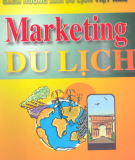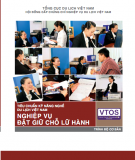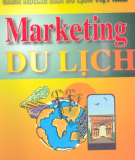Tài liệu Thư viện số
- Công nghệ thông tin (2019 )
- Điện tử viễn thông (1133 )
- Quản trị kinh doanh (1305 )
- Kế toán (1003 )
- Môi trường (968 )
-
Du lịch
(861 )
- Kiến trúc (424 )
- Xây dựng (1082 )
- Ngoại ngữ (302 )
- Y dược (1391 )
- Khoa học tự nhiên (874 )
- Khoa học xã hội (514 )
- Lý luận chính trị (573 )
- Sau đại học (243 )
- Tài liệu tham khảo khác (252 )
Danh mục TaiLieu.VN
- Mẫu Slide Powerpoint
- Luận Văn - Báo Cáo (344720)
- Kinh Doanh Marketing (65512)
- Kinh Tế - Quản Lý (48934)
- Tài Chính - Ngân Hàng (55898)
- Công Nghệ Thông Tin (142209)
- Tiếng Anh - Ngoại Ngữ (47066)
- Kỹ Thuật - Công Nghệ (134345)
- Khoa Học Tự Nhiên (107174)
- Khoa Học Xã Hội (82451)
- Văn Hoá - Nghệ Thuật (54408)
- Y Tế - Sức Khoẻ (173915)
- Nông - Lâm - Ngư (62504)
- Kỹ Năng Mềm (29016)
- Biểu Mẫu - Văn Bản (27610)
- Giải Trí - Thư Giãn (51994)
- Văn Bản Luật (198854)
- Tài Liệu Phổ Thông (402015)
- Trắc Nghiệm Online (213578)
- Trắc Nghiệm MBTI
- Trắc Nghiệm Holland
Tài liệu nổi bật
Kết quả 709-720 trong khoảng 861
-
Tourism and welfare ethics, responsibility and sustained well-being
The concepts of welfare and well-being represent a diffuse and relatively neglected area within tourism studies. This is despite the increasing importance of such issues as ethics, wellness, human rights, ethnocentrism, corporate social responsibility, industry practice and behaviour codes, green consumerism and the perceptions and management of ‘sustainable’ development. Our welfare emphasis – a holistic approach to the characteristics...
255 p dtu 25/09/2012 207 6
-
Pink tourism holidays of gay men and lesbians
The aim of this book is to examine the holidays of gays and lesbians from, primarily, a marketing perspective. It also examines how marketing activity engages with and affects social issues relating to homosexuality. The primary target audience for this book is postgraduate and secondand third-year undergraduate students on tourism, hospitality, leisure and recreation management courses. Some prior knowledge of marketing and of first-level...
242 p dtu 25/09/2012 209 5
-
This book is an addition to CABI’s excellent list of tourism books and it is the third that I have been involved in as editor, the first as sole editor. I have always been fascinated by the sea, perhaps a legacy of my early childhood spent collecting information about the cruise ships of the day (in the late 1950s and early 1960s), which I then kept and catalogued in scrap books. My interest was further enhanced in my teenage years when...
463 p dtu 24/09/2012 79 3
-
Multiple dwelling and tourism negotiating place, home and identity
As I write this, I look out over the blue, wind-ruffled waters of Amethyst Harbour, a sheltered inlet of Lake Superior in North-western Ontario, towards a ring of pine and birch-clad rocky islets. I am living in what is known in this part of Canada as a ‘camp’. This ‘camp’ has been converted from its original seasonal status to year-round habitation. The only sign of others are a few cottages nestled among the trees around the fringes...
389 p dtu 24/09/2012 168 2
-
Mornitorning for a sustainable tourism transition the challenge of developing and using indicators
This book challenges readers to consider new ways of thinking about sustainable tourism. The book considers the process ofmoving towards sustainability, the changes necessary, the effects and the complexity of these changes. These new ways of thinking encourage the reader to view tourism as a complex system, intricately connected with ecological and social systems. By recognizing this complexity, the importance for sustainable tourism of...
356 p dtu 24/09/2012 199 4
-
Tourism research methods integrating theory with practice
The idea for this book developed from a discussion between the editors suggesting that few research books in the tourism field integrate theory with practice and bridge the divide between business research methods and the growing social science perspective. Many tourism courses do not use one sole textbook for tourism research subjects. This is partly because the tourism industry can be viewed in a multi-disciplinary way, with an interest in...
242 p dtu 24/09/2012 204 4
-
Tourism smes, service quality and destination competitiveness
A successful tourism destination must embrace an integrated approach towards the many components of the tourism system. The role of destination management organizations (DMOs) is vital to providing leadership and coordination for destination stakeholders (Ritchie and Crouch, 2003). Tourism small and medium-sized enterprises (SMEs) have very different approaches to the setting and maintenance of quality standards that are critical to...
377 p dtu 24/09/2012 203 4
-
Free time and leisure participation international perspectives
This book is an expanded and updated edition of World Leisure Participation: Free Time in the Global Village, published in 1996 (Cushman, Veal and Zuzanek, 1996). An updated version of the book is justified on a number of grounds. First, since the mid-1990s, worldwide patterns of leisure participation have changed, as have the social, political, economic and cultural influences on leisure. In each of the chapters in the book, updated national...
306 p dtu 24/09/2012 194 4
-
Improving tourism and hospitality services
The central theme of Improving Tourism and Hospitality Services is rooted in the author’s belief that the main issue for tourism and hospitality managers as the twenty-first century begins should be improving the nature and quality of experiences for the industry’s clients, its staff and others affected by its operations. Although these three groups of people have stakes in the creation and enjoyment of tourism and hospitality services,...
222 p dtu 24/09/2012 284 17
-
New horizons in tourism strange experiences and stranger practices
This book is an attempt to capture the multifaceted nature of tourism in all its wide-ranging experiences and activities, which are often amazing and bizarre. Much tourism revolves around novelty-seeking; and modern technology has made it talismanic for the tourist to seek out the white virginity of the polar regions, to fly into space, and to discover the exoticism of the ‘other’. Tourism today offers a strange world of experiences that...
238 p dtu 24/09/2012 194 6
-
Environmental Impacts of Ecotourism
Ecotourism is widely recognized as the most rapidly growing sector within the global tourism industry. By definition, ecotourism is travel to minimally impacted natural areas and associated cultural locales. Ecotourists enjoy nature, and cultures that coexist harmoniously with the natural environment; they are conscious of minimizing their impacts on nature and local cultures and aim to improve socio-economics of local populations. Given this...
402 p dtu 24/09/2012 220 3
-
Tourism and transition governance, transformation and development
The starting point and basic organizing framework for this volume is the oft understated, yet obvious truism, that international tourism is part of a much wider set of social, cultural, economic, political and environmental change agents, and should be viewed within this wider context and not in isolation. As a corollary, it is consequently often difficult to distinguish the impacts of tourism from the influences of other dynamic processes,...
239 p dtu 24/09/2012 205 4

























